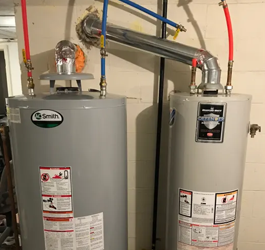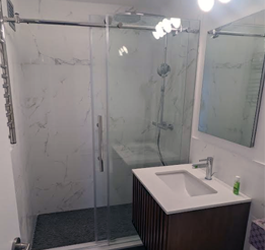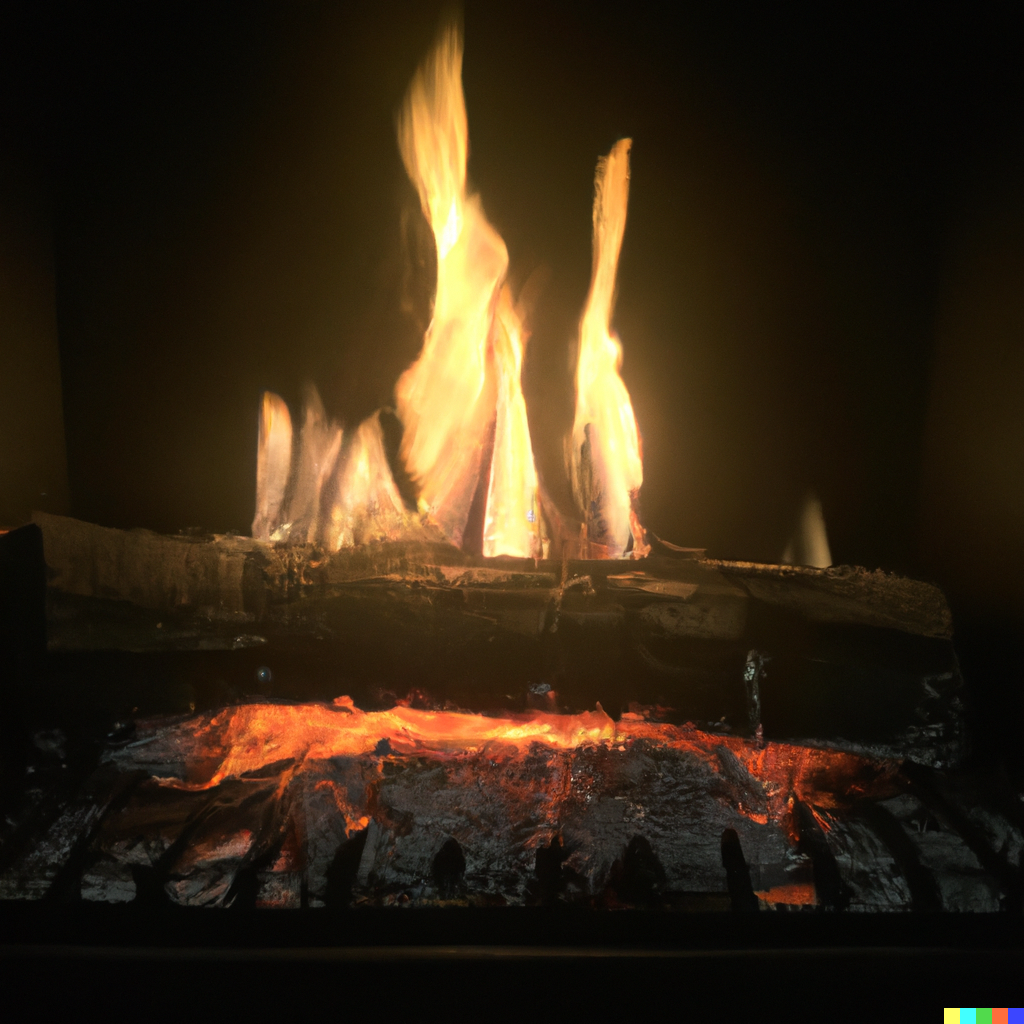Residential Water Heaters: Choosing the Right One for Your Home
Water heaters are an essential part of every household, providing hot water for showers, baths, and cleaning. With so many options on the market, choosing the right one can be a daunting task. This post will provide you with an overview of the different types of residential water heaters, their pros and cons, and some important factors to consider when making your decision. Additionally, we will focus on AO Smith, a leading brand in the water heater industry.
Types of Residential Water Heaters
There are several types of residential water heaters to choose from, including:
- Conventional Storage Water Heaters
Conventional storage water heaters are the most common type of water heater found in homes. They work by heating water in a tank and storing it for later use. They are available in electric, natural gas, and propane models. These water heaters are a good choice for homes with a moderate to high demand for hot water, as they have a large capacity tank and can supply hot water to multiple fixtures at once.
- Tankless Water Heaters
Tankless water heaters, also known as on-demand water heaters, heat water as it flows through the unit, providing an endless supply of hot water. They are more energy-efficient than conventional storage water heaters, as they do not need to keep a large tank of hot water heated at all times. However, they may not be suitable for homes with a high demand for hot water, as they may not be able to keep up with the demand.
- Heat Pump Water Heaters
Heat pump water heaters use electricity to transfer heat from the air or ground to heat the water in the tank. They are more energy-efficient than conventional storage water heaters, but they are also more expensive and may not be suitable for homes in areas with extremely cold climates.
- Solar Water Heaters
Solar water heaters use energy from the sun to heat water, making them an environmentally friendly option. They are typically more expensive upfront but can save you money on energy costs in the long run. However, they may not be suitable for homes in areas with limited sun exposure.
Pros and Cons of Different Types of Water Heaters
Each type of water heater has its own pros and cons. Consider the following when making your decision:
Conventional Storage Water Heaters
Pros:
- Affordable upfront cost
- Available in a variety of sizes to suit different household needs
- Can supply hot water to multiple fixtures at once
Cons:
- High energy consumption
- Limited hot water supply
- Requires regular maintenance and tank replacement
Tankless Water Heaters
Pros:
- Energy-efficient
- Unlimited hot water supply
- Long lifespan
Cons:
- Higher upfront cost
- May not be able to keep up with high demand for hot water
- Requires regular maintenance
Heat Pump Water Heaters
Pros:
- Energy-efficient
- Long lifespan
- Quiet operation
Cons:
- Higher upfront cost
- May not be suitable for extremely cold climates
- Requires regular maintenance
Solar Water Heaters
Pros:
- Environmentally friendly
- Can save money on energy costs in the long run
- Long lifespan
Cons:
- Higher upfront cost
- May not be suitable for homes in areas with limited sun exposure
- Requires regular maintenance and may need additional backup systems for cloudy or rainy days
Home Perfect recommends
AO Smith Residential Water Heaters
Takagi Tankless Water Heaters
Choosing the right size of a residential water heater is important to ensure that your hot water needs are met without wasting energy and money. Here are some factors to consider when determining the right gallon capacity for your water heater:
- Household Size: The number of people in your household and the frequency of hot water usage should be considered. A family of 4 will typically require a 50-60 gallon water heater, while a family of 2 may be sufficient with a 30-40 gallon water heater.
- Peak Demand: The peak demand is the maximum amount of hot water that you'll need at any given time. For example, taking a shower, washing dishes, and running a load of laundry all at once requires a larger water heater than if you only used hot water for a single task. Consider your typical daily hot water usage to determine peak demand.
- Recovery Time: Recovery time is the amount of time it takes for the water heater to refill and reheat the water after it has been depleted. If you have high hot water usage, you'll need a water heater with a faster recovery time, which may require a larger gallon capacity.
- Energy Efficiency: Look for a water heater with high energy efficiency ratings, such as the Energy Star label. The higher the efficiency rating, the more you'll save on your energy bills over time.
- Available Space: Consider the available space in your home for the water heater. Larger water heaters will require more space, so be sure to measure the area where you plan to install the unit.
- Budget: Water heaters come in a range of prices, so consider your budget when choosing the right gallon capacity. Keep in mind that investing in a higher-priced, more efficient water heater will save you money in the long run through reduced energy bills.
Once you've taken all of these factors into consideration, you should have a good idea of the gallon capacity that will work best for your home. It's important to choose the right size water heater to avoid problems such as running out of hot water, wasting energy, and overloading your electrical or gas supply. Consider speaking with a licensed plumber or a water heater specialist to help you make the best decision.
In conclusion, choosing the right gallon capacity for your residential water heater is a critical decision that should be based on a careful consideration of your household size, peak demand, recovery time, energy efficiency, available space, and budget. Make an informed decision to ensure that your hot water needs are met and to save money on energy bills in the long run.
Vent types play a critical role in the safe and efficient operation of residential water heaters. Here are the most common vent types and their characteristics:
- Natural Vent: Natural vent water heaters use outdoor air to supply the combustion process and to vent the fumes produced by the burning fuel. The vent pipe runs from the water heater to the roof or side wall of the house. This type of venting is typically used with fuel-fired water heaters, such as those that use natural gas or propane.
- Direct Vent: Direct vent water heaters use a sealed combustion system to vent fumes outside, which reduces the risk of carbon monoxide poisoning. This type of venting is typically used with high-efficiency water heaters that use natural gas or propane. The direct vent system has two pipes: one for the intake of outside air and the other for venting the fumes to the outside.
- Power Vent: Power vent water heaters use an electric fan to force the fumes outside, which makes this type of venting ideal for homes with limited ventilation. The power vent system has a single pipe that runs from the water heater to the outside of the house. This type of venting is typically used with high-efficiency water heaters that use natural gas or propane.
- Side Wall Vent: Side wall vent water heaters are similar to direct vent systems, but they use a single pipe that runs from the water heater to the outside of the house through an exterior wall. This type of venting is typically used in homes with limited roof space.
- Chimney Vent: Chimney vent water heaters are used with fuel-fired water heaters that use natural gas or propane. The fumes are vented through a chimney, which is typically made of masonry or metal. This type of venting is becoming less common due to the increased use of sealed combustion systems.
When choosing the right vent type for your water heater, consider the following factors:
- Fuel Type: Consider the type of fuel you'll be using (natural gas, propane, etc.) and the efficiency of the water heater. This will help determine which vent type is most appropriate for your needs.
- Location of the Water Heater: Consider the location of the water heater and the type of ventilation that is available. For example, if the water heater is located in a basement with limited ventilation, a power vent system may be the best option.
- Building Code Requirements: Building codes vary by region, so it's important to determine the requirements for your area. Some codes may require specific vent types, such as direct vent or power vent, for certain types of fuel-fired water heaters.
- Cost: Vent types can vary in cost, so consider your budget when choosing the right type of venting for your water heater.
In conclusion, choosing the right vent type for your residential water heater is important to ensure safe and efficient operation. Consider the type of fuel, location of the water heater, building code requirements, and cost when determining the best type of venting for your needs. Consult with a licensed plumber or a water heater specialist to ensure that you choose the right type of venting for your home.










